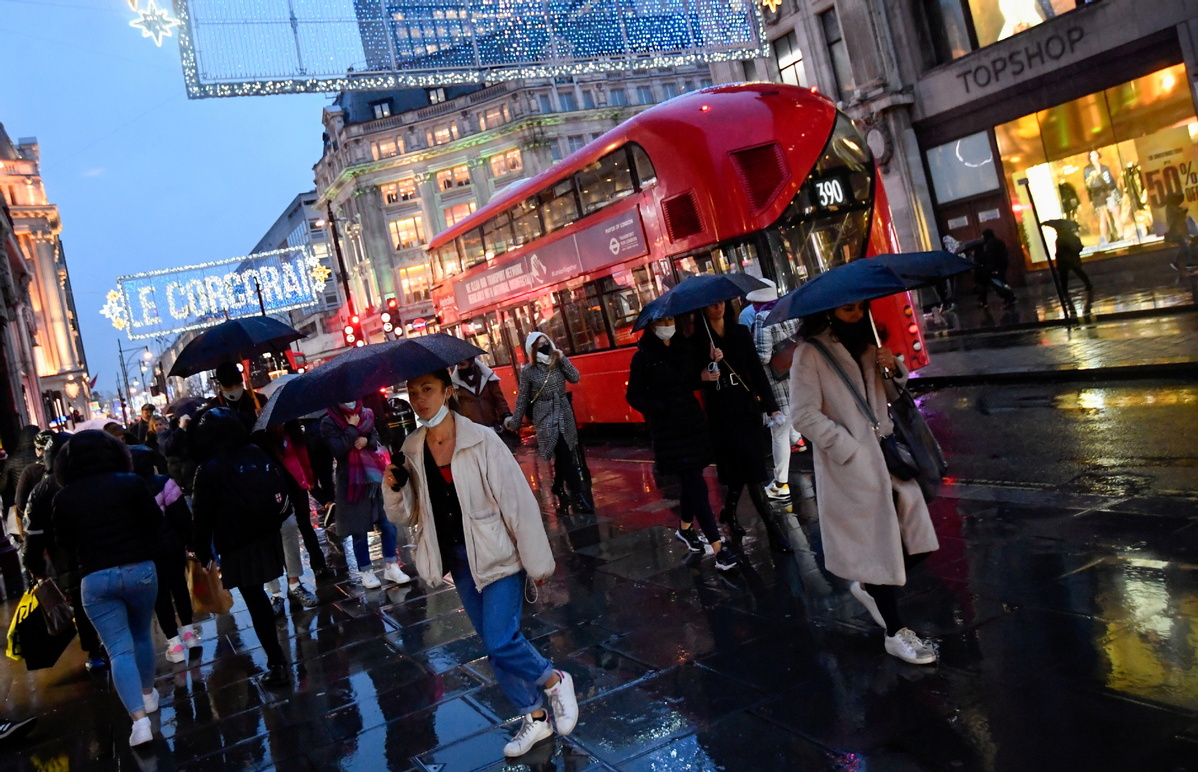UK tries to ease investment control fears
By JULIAN SHEA in London | China Daily Global | Updated: 2021-12-21 09:04

Legislation being introduced in the new year relating to controls on business investment on national security grounds will be used in a limited way to stop "only a small minority of acquisitions that pose a potential risk" to the United Kingdom, business leaders have been assured.
The new regulation will add to government powers to screen potential investors, and had sparked fears in some parts of the business sector that a longer, slower process could prove a major disincentive for overseas investors who might otherwise be interested in buying into British projects and companies.
But the Financial Times quoted a letter sent by business minister Martin Callanan explaining the circumstances in which the forthcoming National Security and Investment Act would be used, and reassuring them it was only for exceptional cases.
The new legislation relates to 17 different sectors, and sets out a wide range of civil and criminal penalties for those who fail to comply.
Previously, financial services lobbying organization TheCityUK had expressed concern that "vast numbers of transactions could be submitted for review, adding significant costs to investors, and deterring future investment".
A recent example of a situation where it could be invoked was the case of French billionaire Patrick Drahi, who recently increased his stake as the biggest shareholder in British telecoms provider BT to 18 percent.
Shortly after this was revealed, the government said it was "monitoring the situation carefully" and would "not hesitate to act if required to protect our critical telecoms infrastructure".
The Daily Telegraph reported that Drahi was being scrutinized because of "his record as an enthusiastic cost-cutter and user of debt to fund his deal making".
It added that BT played a significant role in national infrastructure and had a multibillion-pound pension deficit, which would have to be covered by taxpayers in the event of any financial problems.
In his letter, Callanan insisted the act, which he called "the biggest shake up of the UK's national security investment screening powers for 20 years … cannot and will not be used for anything other than national security".
The vast majority of acquisitions would be unaffected, he continued, but he said it was "an unavoidable truth that a handful want to do us harm".
In the summer of 2020, Chinese technology company Huawei was banned from involvement in building the UK's 5G network, six months after Prime Minister Boris Johnson had approved participation, and the $40 billion takeover of British chipmaker ARM by United States company Nvidia is also being closely scrutinized.
Chinese nuclear power company CGN could also find itself falling victim to the tightening of key infrastructure regulations.
In the summer, it was reported that its 20 percent stake in the planned Sizewell C nuclear plant in Suffolk on the east coast of England, which was agreed in 2015, could be under threat, following a cooling of relations between London and Beijing.
























